
PREV ARTICLE
NEXT ARTICLE
FULL ISSUE
PREV FULL ISSUE
A NUMISMATIST'S VISIT TO NEW ORLEANSJeff Burke submitted this account of his recent visit to New Orleans and the numismatic sights and people he encountered there. Thanks! -Editor Jeff Burke Getting Our Bearings in a Fabled City
As I studied a hand-drawn map of the French Quarter (courtesy of our tour guide), I noticed the Old U.S. Mint on the far right side of the page. Today, the structure primarily serves as the New Orleans Jazz Museum. But in the 19th century it embodied "...Andrew Jackson’s long war with the Second Bank of the United States and paper currency. New Orleans was selected as a location for the manufacture of hard currency because it was the ‘emporium of the Great Valley’ with gold and silver specie from Mexico flowing through its active markets." (Winter, Douglas, et al. Gold Coins of the New Orleans Mint: 1839-1909, Zyrus Press, 2006, p.11). Perhaps we would see shipwreck coins at the mint due to the history of hurricanes and lost ships in the Gulf of Mexico. I couldn’t wait to see the mint in person! The Old U.S. Mint
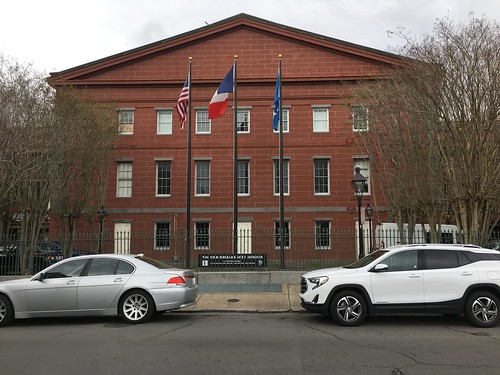 I tried to imagine what it was like to put in a long daily shift at the mint. What were the smells like in this facility during operations, which involved "treasury, melting and refining, assaying and coining"? (Winter, p. 12). Operating heavy machinery, with metal dust in the air combined with the subtropical climate of New Orleans, must have made for challenging working conditions. As Beth and I checked our phones for COVID-19 updates, I recalled New Orleans’ history of yellow fever epidemics. How had these impacted mint workers and coin production? And what would happen if we ended up in a modern-day quarantine in this city? Worries for both our fellow tourists and the many gracious New Orleanians who welcomed us to their hometown would linger throughout our time here. 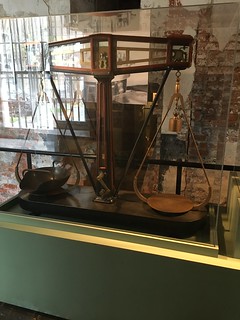 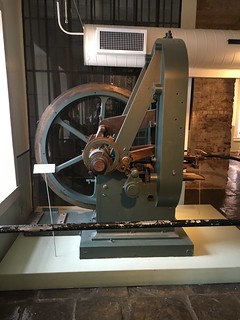 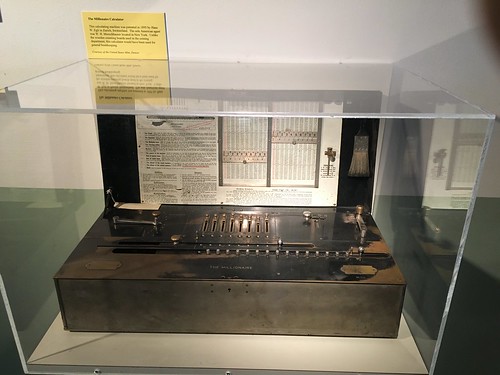 I was intrigued by the machinery at the mint. The adjusting process was used to prepare planchets for the coinage phase of the operations. Planchets were tested for proper weight before coining. Underweight planchets were returned to the melting department, and overweight planchets were designated for adjustment. From mint displays, I learned that between 1879 and the mint’s closing in 1909, it was women who played the central role in the adjusting process. Women would file off excess metal until each planchet met the weight requirements. (Winter, pp. 14-15). Women played a prominent role in running the coining presses, as well. Also of interest were a display of coins from the SS New York shipwreck. These coins were certified by NGC. 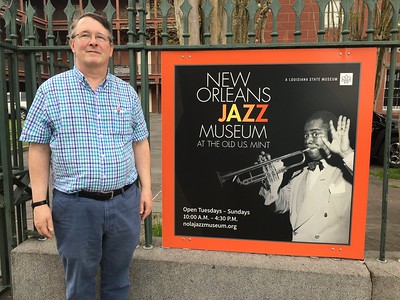 To view all of Jeff's Mint photos, see:
James H. Cohen and President Ford
I discovered a small showcase display dedicated to James H. Cohen, a distinguished numismatist who died at the age of 91 in 2017. Stephen and Jerald, his sons, kindly told me more information about their late father. Four generations of Cohens have owned and run this store! 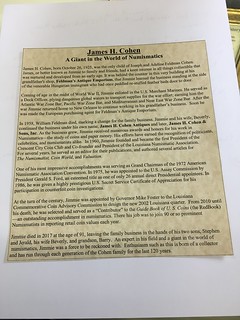 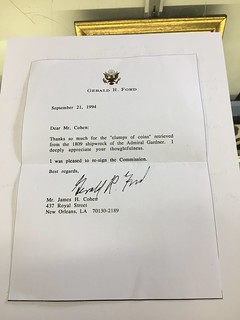 James was appointed to the United States Assay Commission by President Gerald Ford in 1975. Jerald told me a fascinating story about his father’s commission letter, which was on display in a glass counter case. Over the years, the President’s signature had begun to fade. In 1994, a customer came into the store and also noticed the fading ink. The stranger told James that he knew President Ford and could get the letter re-signed by him. James took a leap of faith and agreed to the proposal. Several weeks later, the re-signed letter arrived in the mail, along with a personal note from the former president! Jerald told me that his father served as General Chairman of the ANA Convention in New Orleans in 1972. Jerald will be getting his 50-year ANA membership pin in a few years! As young boys, Stephen and Jerald worked in the shop with their father. Both boys developed an expert knowledge of numismatics from hands-on shop training from James and by traveling with their parents to trade shows in other parts of the country. (Gilkes, Paul "Veteran Numismatist Jimmie Cohen Dies in Louisiana," Coin World, April 9, 2017). The Cohen family has had a long and storied numismatic history in the beautiful city of New Orleans. 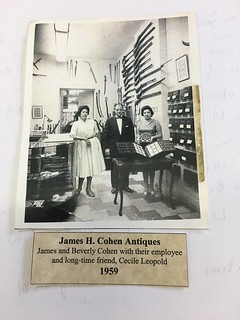 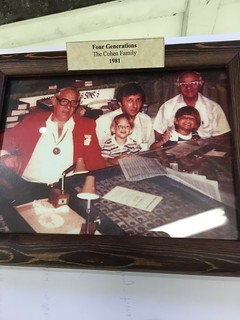 We achieved our dream of visiting New Orleans! I loved seeing the architectural styles in the French Quarter. Touring the mint gave me a deeper appreciation for the complex operations required to produce coins. Discovering the Cohen shop on Royal Street was a pleasant surprise! We also toured the Hurricane Katrina exhibit in the Presbytere Museum. Many people perished and property was destroyed when Katrina struck New Orleans on August 29, 2005. Yet, New Orleanians showed resolve, steadfastness and resiliency in the face of this tragedy and made a magnificent comeback. As we face the coronavirus pandemic, we can look to their courage in adversity as a model for our country. Acknowledgements: My thanks go to Stephen and Jerald Cohen for sharing memories of their father with me. I am also grateful to Jerald for pulling some family pictures and other documents from a display case to share with me. The Cohen brothers read through a draft of this piece for the sake of accuracy. To visit the James H. Cohen & Sons, Inc web site, see:
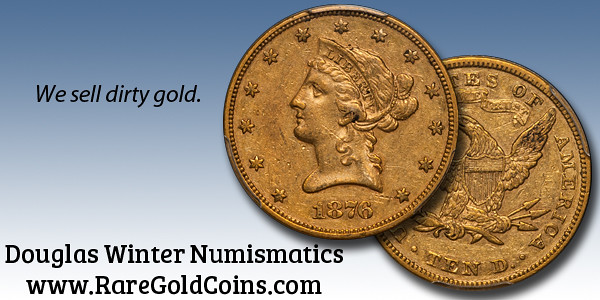 Wayne Homren, Editor The Numismatic Bibliomania Society is a non-profit organization promoting numismatic literature. See our web site at coinbooks.org. To submit items for publication in The E-Sylum, write to the Editor at this address: whomren@gmail.com To subscribe go to: https://my.binhost.com/lists/listinfo/esylum All Rights Reserved. NBS Home Page Contact the NBS webmaster 
|